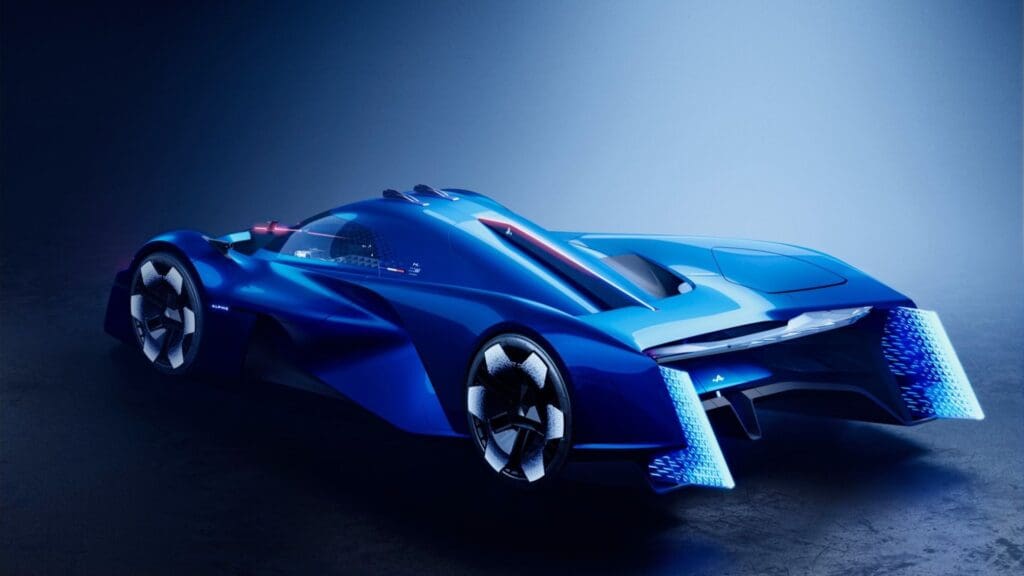Would you like to get notifications from Christian?
Alpine, a subsidiary of Renault, has revealed its Alpenglow concept car. This unique hydrogen-powered racer is just the beginning of Alpine's plans for environmentally friendly transportation. With mobility combining carbon-neutral systems, Alpenglow is a glimpse into the exciting future of FCEVs (fuel cell electric vehicles).
As climate change continues to be a pressing global issue, it is more important than ever for businesses to find ways to reduce their carbon footprint. Fortunately, with cutting-edge technology like fuel cells, we are moving closer and closer to a future of environmentally-friendly transportation. Fuel cells create electricity through a chemical reaction between hydrogen and oxygen, with water and heat as the byproducts. Hydrogen cars have the potential to be much cleaner and more efficient than cars that run on gasoline or battery power alone.

One of the significant advantages of FCEVs over BEVs (battery electric vehicles) is refueling time. It takes only a few minutes to fill up a hydrogen tank, whereas it can take hours to charge a BEV battery. Additionally, FCEVs have a more extended range than BEVs—up to 300 miles on a single tank of hydrogen, compared to around 200 miles for most BEVs. And finally, FCEVs produce zero emissions, whereas even the best BEVs still produce some emissions from manufacturing and power generation.

Alpenglow was designed with both performance and style in mind. The sleek silhouette reflects the idea that form comes from function—every element serves a purpose. For example, the two hydrogen tanks surrounding the torso not only add to the futuristic look of the car but also signal its overwhelming power. The overall design is aerodynamic, which increases performance and efficiency.
Renault-owned Alpine is at the forefront of cutting-edge automotive technology with its Alpenglow concept car. This striking vehicle gives us a glimpse into a cleaner, more sustainable future for transportation. With its combination of style and substance, Alpenglow is sure to turn heads—and pave the way for a new era of hydrogen-powered cars.
Author: Christian Kromme
First Appeared On: Disruptive Inspiration Daily
Christian is a futurist and trendwatcher who speaks about the impact of exponential technologies like AI on organizations, people, and talents. Christian tailors his presentations to your audience's specific industries and needs.



Our world is changing at an exponential rate! A big tidal wave of digital transformation and disruption is coming at us fast. Many organizations see this wave as a threat and experience stress, but there are also organizations that just see this wave as an opportunity.

Imagine sitting with just 10-15 fellow executives at a premier location, gaining clarity on the impact of AI on your industry while enjoying an exquisite dining experience. These are not just meetings—they are transformative moments that will shape the future of your organization



In the future, 3D printing and generative design will allow for products to be designed in a more decentralized manner, and production will take place closer to the customer and fully on-demand. 3D printing technology will also allow for more customization and personalization of products.


The agricultural industry is ripe for disruption. Robotics, AI, and IoT are all technologies that have the potential to radically transform the way we grow food. In combination with vertical farming, these technologies could increase the efficiency and quality of agricultural products.

A human-centered society is one that puts people first and where technology is used to unite and empower people. It is a society that values biological life and dignity above all else. It is a society that recognizes the importance of human relationships and works to strengthen them. In a human-centered society, all members of the community are valued and treated with respect.


The future of healthcare is here. New technologies like AI, IoT, big data, and smart sensors make it possible to become the CEO of your own health. Imagine that your phone can listen to your voice and AI algorithms can detect small nuances in the tone of your voice that indicate specific diseases.
